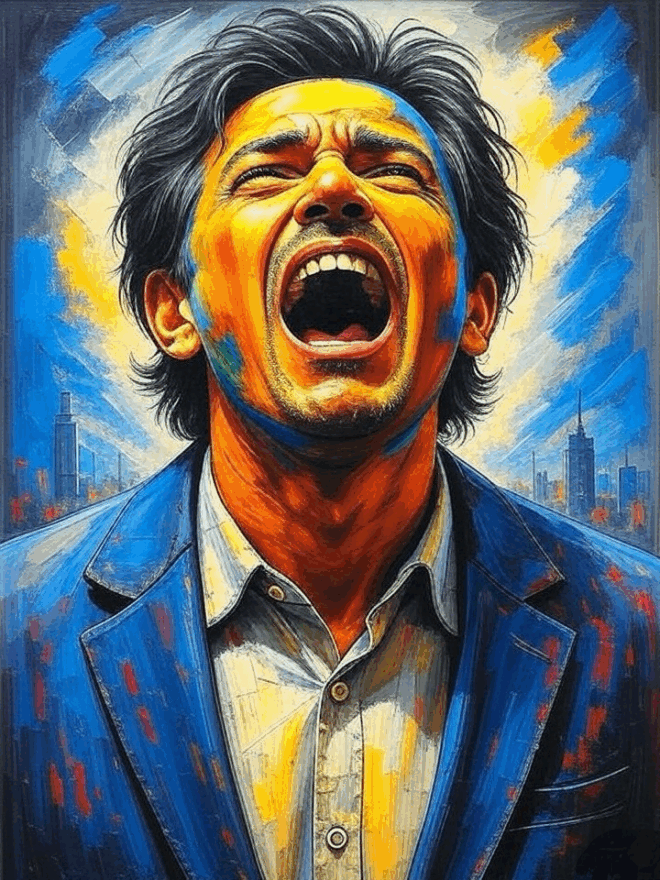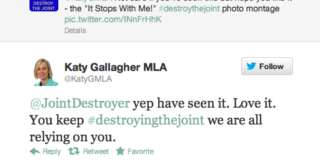
A lifetime ago, I designed and taught a course titled Personal Crisis and Literature, an exploration of how literary works across millennia illuminate the human experience of crisis. The course rested on a profound premise: no matter the crisis – grief, betrayal, identity, or existential despair – humanity has faced it before and these experiences are preserved in the written word, accessible to anyone with the ability to read and the curiosity to engage. Literature, particularly poetry, serves as a repository of shared struggles, triumphs and transformations, offering solace and wisdom. I write, just as I read, because I believe literature grants us freedom – freedom to imagine, invent, travel through time and space and, uniquely, to step into another’s mind. This act fosters empathy, expanding us beyond selfhood into mutual understanding. Poetry, with its distilled language and emotional resonance, amplifies this empathetic potential, acting as a democratic medium that bridges divides. Yet, this freedom requires education: to unlock literature’s transformative power, we must be taught to read, value and engage with it. This paper explores the interplay of literature, poetry and empathy, drawing on my Personal Crisis and Literature course and the specific contributions of poets Langston Hughes, Wilfred Owen, Maya Angelou, Mahmoud Darwish, Audre Lorde and Emily Dickinson, whose works exemplify how poetry cultivates empathy in the face of personal and collective crises.
The Course: Literature as a Lifeline in Crisis
The Personal Crisis and Literature course was an ambitious tapestry of texts, spanning ancient epics to modern novels, each chosen to reflect a facet of personal crisis. We began with the Epic of Gilgamesh (c. 2100 BCE), where Gilgamesh’s confrontation with mortality after Enkidu’s death mirrors our own fears of loss, offering a timeless reflection of vulnerability. Sophocles’ Antigone (441 BCE) explored the tension between individual conviction and societal authority, a crisis of duty and sacrifice. Dante’s Inferno (1320) meditated on sin, redemption and the soul’s descent, while Shakespeare’s Hamlet (1600) probed the paralysing weight of grief and indecision. In the modern era, Virginia Woolf’s Mrs. Dalloway (1925) delved into trauma and mental health through Clarissa’s stream-of-consciousness and Toni Morrison’s Beloved (1987) reckoned with the legacy of slavery, portraying Sethe’s haunting personal toll. Poetry was integral – Rainer Maria Rilke’s Duino Elegies (1923) for its existential yearning, Langston Hughes’ The Negro Speaks of Rivers (1921) for its resilience and Sylvia Plath’s Ariel (1965) for its raw confrontation with despair.
The course’s thesis was that literature is an archive of human experience, a lifeline for those navigating crises. No matter the struggle – romantic heartbreak, familial estrangement, or the search for purpose – stories and poems show that others have been there, leaving behind maps, often poetic, to guide us. This realisation – you are not alone – offers profound comfort, fostering connection across time and culture. The course also emphasised literature’s role in cultivating empathy. By reading Antigone, students felt the weight of her defiance; through Beloved, they grappled with Sethe’s unimaginable choices. These acts of imaginative engagement taught students to step into others’ perspectives, a practice that mirrored real-world empathy. The classroom became a space where diverse students shared their own crises, finding common ground through literature’s universal themes, reinforcing its democratic power to unite.
Literature as Freedom: The Democratic Power of Stories
Literature offers a unique freedom. In its realm, we are unshackled from immediate reality, able to imagine worlds that do not exist, invent characters embodying our fears and aspirations and change our minds without judgment. We travel through time – to ancient Mesopotamia or Renaissance England – and across space, from Dickens’ London to García Márquez’s Macondo. Most remarkably, literature enables us to step into another’s mind, feeling what it is to live as Raskolnikov in Crime and Punishment or Janie in Their Eyes Were Watching God. This empathetic leap expands the self, fostering mutual understanding and compassion, essential for a connected society.
This capacity makes literature fundamentally democratic. In a novel or poem, every voice – king, slave, child, outcast – has the potential to be heard. Literature does not discriminate based on wealth or status; it invites all to participate in the human story. Through reading, we encounter perspectives that challenge assumptions, broadening our horizons and reminding us of our shared humanity. In a world divided by ideology or circumstance, literature builds bridges, fostering the empathy needed for compassion. For example, reading Morrison’s Beloved compels readers to confront the horrors of slavery, not as abstract history but as lived experience, urging empathy for those whose descendants still face systemic inequities.
Yet, this freedom is not universal. To engage with literature requires education – not just mechanical literacy but the ability to interpret and connect texts to one’s life. In many regions, access to education remains a privilege and even in literate societies, literature is often taught as a hurdle to clear rather than a space for exploration. Cultural attitudes prioritising visual media over reading further marginalise literature’s value. Without access, individuals are cut off from this transformative power, left to navigate crises in isolation. Teaching literacy and valuing literature is thus a moral imperative, equipping people to transcend circumstances and connect with others.
Poetry’s Unique Role in Empathy
Poetry, a concentrated form of literature, amplifies empathy through its distilled language, accessibility and emotional resonance. Unlike prose’s expansive narratives, poetry captures moments of feeling with precision, inviting readers to slow down and inhabit another’s perspective. Its rhythm, imagery and economy of words create intimacy, while its reliance on universal emotions – love, loss, fear – makes it democratic. Poetry’s oral tradition, from ancient recitations to modern slam poetry, fosters communal engagement, building solidarity among diverse audiences.
Poetry evokes shared humanity by articulating universal feelings through specific lenses. For instance, a poem about personal heartbreak can resonate with anyone who has loved and lost, regardless of context. Poetry also amplifies marginalised voices, challenging readers to empathise with experiences they may not share, such as systemic oppression or exile. Its ambiguity invites active participation, mirroring empathy’s requirement to meet others halfway. While dense language or cultural specificity can pose barriers, poetry’s emotional universality makes it accessible when supported by education, translation, or performance.
Specific Poets and Empathy: Voices of Connection
Certain poets exemplify poetry’s empathetic power, each using their voice to bridge divides and illuminate shared humanity. Their works, rooted in personal and collective crises, invite readers to feel with them, fostering empathy across diverse contexts.
Langston Hughes illuminated the African American experience, connecting personal struggles to universal dignity. In The Negro Speaks of Rivers (1921), Hughes links the speaker’s soul to ancient rivers: “I’ve known rivers ancient as the world and older than the flow of human blood in human veins.” The poem’s serene tone and mythic imagery invite readers to recognise Black heritage’s depth, fostering empathy for a marginalised community. Let America Be America Again (1936) voices the disillusionment of the oppressed – “I am the poor white, fooled and pushed apart, / I am the Negro bearing slavery’s scars” – universalising suffering and urging empathy across racial and economic divides. Hughes’ jazz-inflected, accessible language, rooted in Harlem Renaissance rhythms, creates emotional immediacy, making his poetry a bridge for understanding. His work also reflects the crisis of systemic racism, encouraging readers to empathise with those denied the American dream.
Wilfred Owen, a World War I poet, plunged readers into war’s trauma, fostering empathy for soldiers and civilians. In Dulce et Decorum Est (1917), vivid imagery – “He plunges at me, guttering, choking, drowning” – and irregular rhythms mimic a gas attack’s chaos, forcing readers to feel the soldier’s suffering. By addressing readers directly, Owen demands empathy, challenging war’s glorification. Anthem for Doomed Youth (1917) grieves the dehumanised – “What passing-bells for these who die as cattle?” – using the sonnet form to amplify tragedy. Owen’s poetry, written from the trenches, transcends nationality, fostering empathy for all war victims, a message resonant in today’s conflicts. His work reflects the crisis of industrialised warfare, urging readers to imagine the human cost behind headlines.
Maya Angelou radiated resilience, inviting empathy for those overcoming adversity. Still I Rise (1978) celebrates survival against oppression – “You may trod me in the very dirt / But still, like dust, I’ll rise” – its rhythmic defiance allowing readers to feel the speaker’s strength. Caged Bird (1983) contrasts a free bird with a caged one, whose “grave of dreams” evokes systemic injustice’s toll, fostering empathy for the marginalised. Angelou’s accessible language, rooted in her experiences as a Black woman, makes her poetry a gateway to understanding, connecting readers to shared triumphs and struggles. Her work addresses crises of racism and sexism, encouraging empathy for those navigating intersecting oppressions.
Mahmoud Darwish, Palestine’s national poet, explored exile and identity, fostering empathy for the displaced. In Identity Card (1964), the refrain “Write down: / I am an Arab” asserts dignity amid dehumanisation, grounding the political in personal details like olive groves. Under Siege (2002), written during the Second Intifada, reflects resilience – “Here, by the downslope of hills, facing the sunset / and time’s muzzle, / we prepare our tea” – humanising those under occupation. Darwish’s lyrical yet accessible style, often performed aloud, creates communal spaces for empathy, bridging cultural divides. His poetry reflects the crisis of displacement, urging readers to empathise with those uprooted by conflict, a pressing issue in today’s refugee crises.
Audre Lorde, a Black lesbian feminist, amplified intersectional struggles, fostering empathy for the marginalised. A Litany for Survival (1978) addresses those “imprinted with fear,” its incantatory rhythm inviting readers to feel their resilience: “For those of us / who were imprinted with fear / like a faint line in the centre of our foreheads.” Power (1978), inspired by a police killing, channels rage – “I am trapped on a desert of raw gunshot wounds” – demanding empathy for victims of systemic violence. Lorde’s unflinching honesty pushes readers toward transformative understanding, addressing crises of racism, sexism and homophobia. Her work challenges readers to confront privilege and empathise with those at society’s margins.
Emily Dickinson, an introspective 19th-century poet, invited readers into her psyche, fostering empathy through universal emotions and marginalised perspectives. In I felt a Funeral, in my Brain (F340, c. 1862), fragmented syntax and imagery – “And then a Plank in Reason, broke” – plunge readers into mental collapse, creating visceral connection. After great pain, a formal feeling comes – (F372, c. 1862) universalises grief’s aftermath – “The Nerves sit ceremonious, like Tombs” – inviting readers to project their own losses. I’m Nobody! Who are you? (F260, c. 1861) celebrates anonymity – “I’m Nobody! Who are you? / Are you – Nobody – too?” – fostering empathy for the unseen, particularly women. My Life had stood – a Loaded Gun, (F764, c. 1863) explores suppressed power, encouraging empathy for constrained voices. There’s a certain Slant of light (F320, c. 1861) captures existential unease – “When it comes, the Landscape listens – / Shadows – hold their breath” – inviting readers to recall their own melancholy. Dickinson’s work reflects the crisis of isolation, resonant in today’s mental health challenges, fostering empathy through shared vulnerability.
Dickinson’s Unique Contribution: Empathy Through Introspection
Dickinson’s poetry stands out for its introspective depth, offering a unique lens on empathy. Her seclusion as a woman in a patriarchal society informed her focus on the domestic and emotional, realms often dismissed as feminine. Her concise, fragmented form – dashes, slant rhymes, short lines – mirrors the jagged nature of emotions, creating emotional intimacy. Her ambiguity allows readers to co-create meaning, paralleling empathy’s collaborative nature. For instance, There’s a certain Slant of light uses universal imagery – a winter afternoon’s light – to evoke shared melancholy, fostering connection. By valuing the “Nobody” and exploring suppressed power, Dickinson challenges readers to empathise with the marginalised, particularly women, whose inner lives were often ignored. While her dense style can pose barriers, her familiar imagery – nature, the heart – makes her poetry accessible with guidance, enhancing its empathetic impact.
Challenges and the Role of Education
Despite literature and poetry’s empathetic potential, access remains a challenge. Dickinson’s complexity, Darwish’s cultural specificity, or Owen’s historical context can alienate readers without literary training. Systemic barriers, like unequal education, further limit access, particularly for marginalised communities. In many schools, literature is reduced to memorisation, stifling its emotional resonance. Cultural shifts toward instant media also marginalise reading’s slow, deliberate act. Moreover, empathy cultivated through literature does not always translate into action; feeling another’s pain does not guarantee efforts to address injustice.
Education is critical to overcoming these barriers. Teaching literacy and critical engagement – not just decoding words but interpreting and connecting texts to life – unlocks literature’s transformative power. Educators must prioritise accessibility, through translation, contextualisation and inclusive teaching, ensuring poetry’s emotional universality resonates widely. For example, teaching Hughes’ jazz rhythms or Angelou’s oral cadence can engage diverse students, while contextualising Darwish’s Palestinian references makes his work relatable. Communities can foster empathy by creating spaces for shared reading – poetry slams, book clubs, public readings – where diverse voices are heard, reinforcing literature’s communal power.
Literature and Poetry in Today’s World
In today’s world, marked by crises – climate change, polarisation, mental health challenges, inequality – literature and poetry remain vital. They offer solace, perspective and connection, helping us see our struggles within humanity’s tapestry. The COVID-19 pandemic, for instance, amplified isolation, making Dickinson’s introspective poetry or Angelou’s resilient voice deeply relevant. Climate fiction and eco-poetry address environmental crises, fostering empathy for future generations. In an era of misinformation, literature’s democratic ethos counters echo chambers, encouraging us to listen and empathise.
The poets discussed – Hughes, Owen, Angelou, Darwish, Lorde, Dickinson – demonstrate literature’s power to navigate crisis and cultivate empathy. Hughes connects through shared heritage, Owen through war’s horrors, Angelou through resilience, Darwish through exile, Lorde through intersectional struggle and Dickinson through introspection. Their accessible yet profound voices create emotional intimacy, amplify marginalised perspectives and evoke shared humanity, making their work enduringly relevant in addressing today’s challenges, from racial justice to global displacement.
Conclusion
Literature, particularly poetry, is one of humanity’s greatest gifts – a space of freedom, empathy and connection that transcends time and place. The Personal Crisis and Literature course illuminated how stories and poems offer solace and wisdom, reminding us we are not alone. Poets like Hughes, Owen, Angelou, Darwish, Lorde and Dickinson exemplify this, inviting readers to step into diverse minds and hearts, fostering empathy that bridges divides. Their works address crises – racism, war, oppression, exile, isolation – while celebrating resilience and humanity, offering lessons for our fractured world. Yet, this gift requires education and engagement to be fully realised. As we face today’s crises, let us champion literacy and literature as necessities, teaching ourselves and others to read with curiosity and courage. In the realm of literature, we are all free – free to imagine, feel and become more fully human. Through this freedom, we can face any crisis, bridge any divide and write the next chapter of our collective story, enriched by the empathy that literature and poetry so powerfully cultivate.



